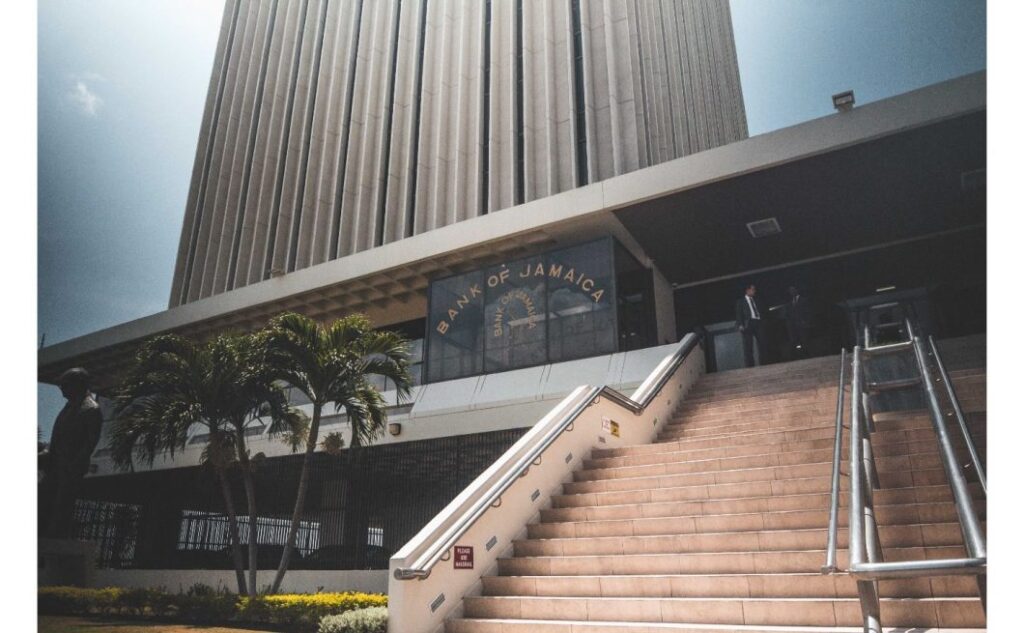

Jamaica’s decade-old economic transformation again received commendations from the International Monetary Fund (IMF) on Thursday, May 8, in an Article IV preliminary report that highlighted improvements in the country’s fiscal position and the continued strengthening of institutions and policies.
The review follows a team visit led IMF Division Chief, Western Hemisphere Department Mauricio Villafuerte. Members of the team held meetings in Kingston (and virtually) with Jamaican government counterparts, private sector, civil society, and development partners from April 30-May 7 to conduct the 2025 Article IV consultation.
According to the report, “Over the last decade, Jamaica has successfully reduced its public debt, firmly anchored inflation and inflation expectations, and strengthened its external position. It has built an enviable track record of investing in institutions and prioritising macroeconomic stability. Jamaica has met recent global shocks and natural disasters in a manner that is agile, prudent, and supportive of growth.”
In particular, the IMF team noted that while Jamaica’s productive output declined in FY2024/25 due to Hurricane Beryl and Tropical Storm Raphael, “economic activity is projected to normalise as these effects wane”.

The weather systems shaved earnings from agriculture as farms were left waterlogged, greenhouses damaged or destroyed, and trees uprooted. They also damaged infrastructure, including roadways, telecoms, electricity and schools, as well as undermined tourist arrivals.
Notwithstanding the devastating impact, “unemployment has fallen to all-time low levels (3.7 per cent in January 2025) and inflation has converged to the Bank of Jamaica (BOJ)’s target band of 4-6 per cent,” the IMF report outlined.
“The current account has been in a modest surplus for the last two fiscal years, with strong tourism revenues and high remittances. The international reserves’ position has continued to improve,” it continued.

In its outlook, the IMF team projects that economic growth will return to its potential rate in the FY2025/26 as recovery takes place and with inflation stabilising at the BOJ’s target range. Jamaica’s economy suffered a 3.5 per cent and 0.8 per cent in the third and fourth quarters of 2024, according to data from the Statistical Institute of Jamaica.
The IMF is, however, concerned that global developments will require continued close monitoring as they present downside risks such as tighter global financial conditions, lower growth in key source markets for tourism, and trade policy disruptions. At the same time, extreme weather events—such as floods, hurricanes, or earthquakes—continue to threaten economic activity.
“The Jamaican authorities continue to implement sound macroeconomic policies, aided by robust policy frameworks. A primary surplus is expected for FY2025/26, leading public debt to fall towards 65 per cent of GDP by the end of the fiscal year, the lowest level in 25 years and well below pre-pandemic levels,” the IMF team projects.
It added: “The Bank of Jamaica’s approach to monetary policy has anchored inflation around the mid-point of the inflation target band and inflation expectations have declined close to the upper band of the BOJ’s target range. The lowering of the policy rate in 2024 was justified in view of the temporary nature of the weather-related shocks and the expected convergence of inflation to the BOJ’s target.”

Moreover, the IMF says the current fiscal-monetary policy mix positions Jamaica to respond to the various downside global risks, should they materialise. Additionally, it points out that the policy frameworks are benefiting from ongoing improvements.
One example of this, the IMF cites, is that “the wage bill reform has reduced distortions in public sector compensation, increasing both transparency and competitiveness of civil service salaries.”
It also applauded the introduction of a Fiscal Council and the implementation of Basel III requirements and the BOJ’s twin peaks supervisory model.

However, it noted, “Going forward the wage bill needs to be carefully managed to avoid crowding out other fiscal priorities. At the same time, there is room to improve the efficiency of public spending per recommendations of an Agile Public Expenditure and Financial Accountability assessment completed in June 2024.”
In the meantime, the IMF is calling for an explicit operational debt ceiling below the current debt limit to be entrenched in the fiscal responsibility law. This will help guide policies over the medium term, ensure that debt is kept at moderate levels, while the country builds fiscal buffers.
In addition, the fund recommends implementing reforms to deepen the foreign exchange market and allow greater exchange rate flexibility in order to strengthen the transmission mechanism of monetary policy.
In concluding, the IMF said, “The authorities are implementing policies to foster potential growth and tackle supply-side constraints that inhibit growth. Low productivity has been worsened by structural impediments, including high crime, barriers to competition, poor educational outcomes, inadequate infrastructure, and barriers to trade. The authorities are addressing these issues by increasing investments in policing and security (which has led to a sustained decline in major crimes).
“Efforts are also underway to establish an unemployment insurance and strengthen employment services (including job counselling and job matching). The authorities continue to introduce measures to reduce pollution and incentivise the adoption of low-carbon technologies. Finally, a comprehensive action plan is being developed to improve statistics.”






Comments